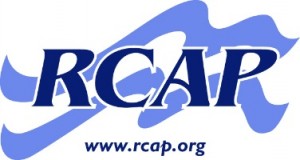WASHINGTON, DC- The Rural Community Assistance Partnership (RCAP) has assessed the state of water and wastewater availability on the US-Mexico border and has outlined recommendations to address the needs of border communities in a new report. As part of the second phase of a joint initiative of the US Department of Agriculture Rural Development (USDA-RD) and the US Environmental Protection Agency (EPA), RCAP’s report provides a snapshot of 2,177 surveyed colonias (underdeveloped border areas) and serves as a resource for those working to improve conditions and quality of life in the colonias.
This report on the status of the colonias in Texas, Arizona, New Mexico, and California reflects the most comprehensive and up-to-date assessment of this critical issue that has been completed to date. Two RCAP partners, Communities Unlimited and Rural Community Assistance Corporation, compiled existing data sources and conducted extensive original research on colonias that still lack adequate water and wastewater services. Particular attention was directed at the hundreds of utilities that are currently providing services or that could conceivably extend services into these communities.
“RCAP feels that making basic water and wastewater services available to all colonias residents is necessary to ensure public health, to improve living conditions, and to promote opportunities for economic development. I commend the ongoing efforts of USDA Rural Development to provide vital community services to rural America and for their support of this project,” says Robert Stewart, Executive Director of RCAP.
The assessment shows that while progress has been made in connecting border communities to water and wastewater services, many of the biggest challenges lie ahead. Colonias that remain without these services tend to be far from existing utilities, are in areas with little available water, and/or are in areas with poor groundwater quality. The report recommends a robust technical assistance program to build financial, managerial, and technical capacity at the local level to overcome barriers of distance and water quality. Other barriers identified, such as availability of funding programs, will require state and federal action.
For the complete assessment and list of recommendations, the full report is available at www.rcap.org/ColoniasAssessment.
ABOUT RCAP: The Rural Community Assistance Partnership (RCAP) is a national network of six regional RCAPs working to ensure that rural and small communities through the United States have access to safe drinking water and sanitary wastewater disposal. The Partnership provides a variety of programs to accomplish this goal, such as direct training and technical assistance. For more information, visit www.rcap.org.
# # #
Contact: Breanna Detwiler
Director of Communications
Rural Community Assistance Partnership
202-470-2808

